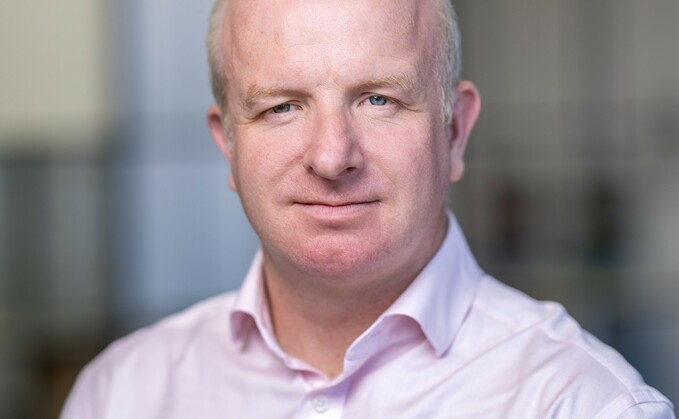
Graeme Bold, Workplace Pensions Director, Scottish Widows
If I was to ask you how many of your pension scheme's members are likely to have some kind of vulnerability, what would the reply be?
It might come as a surprise – shock even – that it's likely to be around 25%, or one in four people. How do we know? We've got data from across Lloyds Banking Group (LBG) which indicates to us how many people are affected, and what the main drivers are.
What causes financial vulnerability?
From our LBG data on millions of customers, we know that the most common vulnerability is now financial distress, with many people struggling with higher inflation, energy and food bills.
The second, most common, reason is people who don't speak English as their first language and can struggle with navigating things like money and pensions; this is followed by a change in personal circumstances such as divorce, job loss, or bereavement.
The fourth most common reason is, worryingly, domestic and economic abuse, which can involve family members or friends coercing someone into changing their pension beneficiary details so that they inherit a pension, or hand over power of attorney when it's not wanted – or misuse the powers they legitimately have.
Those are the top four, but there are of course any number of reasons why someone can be classed – after we ask for their permission of course – as financially vulnerable. Our own research from last year* shows that having a disability of some kind, whether it's physical or a lifelong condition such as autism, and poor mental health, can seriously impact people's finances.
We also know that there are one in two people who are likely to get cancer during their lifetime. It doesn't just affect their health, but can lead to financial hardship, with higher heating and living costs during treatment making an already difficult situation even harder.
Helping customers in vulnerable circumstances
The scale and complexity of all of this is why we've created a customer vulnerability strategy which goes above and beyond the FCA's principles and plays into Consumer Duty, and which we know is making a difference for our members.
Our customer support teams are trained in soft skills to help them identify members who display characteristics of vulnerability and speak with them in a way which is supportive, only flagging a support need on our systems if they're comfortable with it.
Whatever the reason, our ‘tell us once' approach means they don't need to get in touch with different teams.
Bereavement is a case in point. Most of these notifications come in via Lloyds Banking Group branches and often a family member won't even know that their loved one had a pension, and we make them aware and put them in touch with our bereavement team to ensure they receive the funds they are entitled to.
Breaking down the language barrier
Colleagues in our customer contact centres have, between them, the ability and skills to speak to members in 37 languages, as part of our English Not First Language initiative. Where they can't help, our partnership with Clear Voice offers support in 200+ languages and we can call on that in minutes.
What really hits home is when I hear directly from members the difference we're making.
We're funding 15 ring-fenced Citizens' Advice (CA) volunteers for our members to access, quickly. Thanks to our CA partnership, one woman avoided having to take money out of her pension to live on day-to-day and have to pay a hefty amount in tax. Instead, she was able to access benefits she'd previously been denied.
I'm so proud of all this – and so are our colleagues who support so many of our members. Winning an award on this in April isn't about us, it helps us spread the message so that employers and advisers know more about what we're doing and can point people who need help in the right direction.
We're sharing what we're doing with many of our workplace clients too and they've been able to hear first-hand the stark difference when we speak in the native language of a customer, for example, and how a charity support partner made a real impact on the life of the customer on the telephone.
It was emotional for them, for us, and for the customer.
There's much more on this which you can hear more about in our recent podcast – our tenth. Scott Gunderson and Niamh Whelan talk about how we've created our award-winning customer vulnerability strategy. Find out more, download and listen here.
Scottish Widows' Be Money Well hub has resources and information to help members with a financial vulnerability, including our partnerships with Macmillan and Citizens' Advice.
*SWMT Survey 2023


